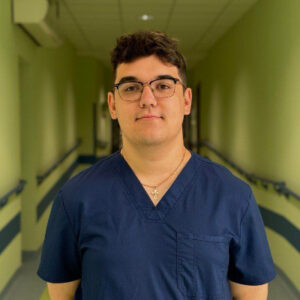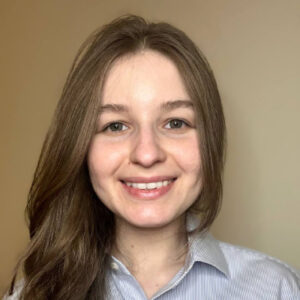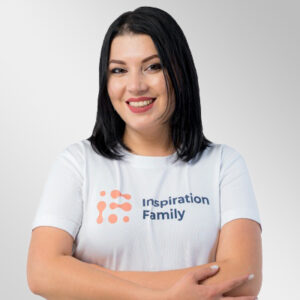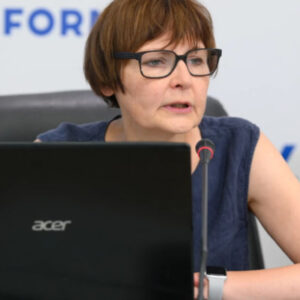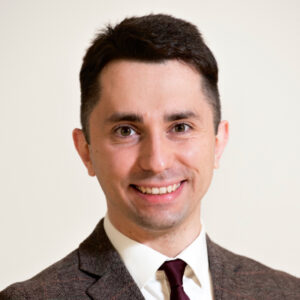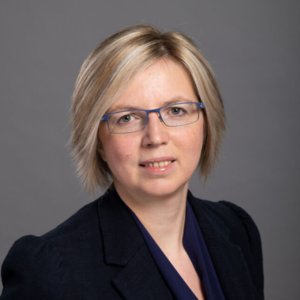

In Ukraine, a country of around 44 million people, over 1.3 million individuals currently live with cancer.
The ongoing Russian invasion has significantly impacted the availability and quality of medical services for these patients. Our non-profit organization, the Global Medical Knowledge Alliance, surveyed patients with cancer in Sept. 2023 at four regional cancer centers in Kyiv, Dnipro, Cherkasy, and Kharkiv to explore patient experiences and the state of public cancer care in Ukraine during the full-scale Russian invasion.
The survey included over 500 respondents, most of whom were women. Two-thirds were older adults, many of whom reported either being retired or on disability.
Financial hardship was common, with one-third of respondents reporting being unable to afford anything except food and basic necessities. In terms of living arrangements, just over half of the patients did not move following the full-scale invasion, while almost half had to relocate either due to the conflict and/or to be able to access cancer care.
Types of cancer and stages
The most common types of cancer among the respondents were breast, colorectal, cervical, lung cancer, and lymphoma. Slightly more than one-third of patients were diagnosed with early-stage cancer.
One-fourth did not know their cancer stage. This lack of knowledge was more prevalent among men compared to women.
Impact of war on treatment
Despite the war, most patients reported no delays in their treatment.
However, one in 10 did report delays due to difficulties accessing treatment centers and medication shortages. This was especially evident in Kharkiv, the city closest to the front lines and heavily affected by the war.
At the same time, financial well-being was not associated with longer waiting times.
Financial burden
While most cancer treatment in Ukraine should, in theory, be covered through the universal public health insurance scheme, one in four patients paid for all or a portion of their treatment out-of-pocket. Out-of-pocket payments for chemotherapy, radiotherapy, and surgery were the most common, with about a quarter of patients reporting paying out of pocket for each.
One quarter of patients had to buy disposable surgical instruments and unavailable equipment or pay for cancer medicines when there were stockouts. One in 10 patients was asked to make charitable contributions to the cancer center.
Patient satisfaction
Patient satisfaction among the 220 patients who received care at the National Cancer Institute was very high, with patients rating the quality of care at an average of 4.5-4.7 out of 5 (this includes the professionalism and competence of doctors, how they treat patients, and how well patients are informed about their illness and care).
Lower scores were given to the availability of necessary equipment, convenience of care organization (4.4 each), availability of free cancer drugs (3.7), and availability of psychological support (3.9) and rehabilitation care (3.7).
Quality of cancer care
Though it is hard to determine the proportion of the patients who should have had molecular/genetic testing done, only one in nine reported having these tests. Of patients below 50 years old, only one in 10 reported that they received information about fertility preservation.
Awareness of patient support and information services
Awareness of additional support services like rehabilitation or psychological counseling was low, with only one in 10 patients knowing about their existence.
Similarly, one in three were unaware of patient organizations that could offer assistance. Most patients reported relying primarily on their physicians for information about cancer treatment, highlighting the need for better communication and support networks.
Conclusion
Access to cancer treatment in Ukraine remains fairly good despite the full-scale Russian invasion, with the caveat of somewhat longer waiting times and a slightly larger proportion of patients who had to pay for cancer medications and surgical instruments out-of-pocket due to stockouts. This was especially true at the Kharkhiv cancer center, which is closer to the front lines.
While financial well-being did not impact waiting times, many of the patients indicated that they had barely enough financial resources to get by, and many had to move to access cancer care and to pay out-of-pocket for services that generally should be covered through universal health insurance.
Our findings underscore the resilience of Ukrainian patients with cancer and cancer care services during the war but also highlight significant gaps in awareness, financial support, and treatment access and quality.
We also found significant gaps in patient awareness about their cancer stage and information/support services available from cancer survivor advocacy organizations, as well as the availability of supportive care services, such as rehabilitation, psychology, and fertility preservation for young patients.
Our findings underscore the resilience of Ukrainian patients with cancer and cancer care services during the war but also highlight significant gaps in awareness, financial support, and treatment access and quality.
Strengthening support networks and improving access to information and services are crucial to support these patients during such challenging times. The findings call for urgent action to address the needs of patients with cancer in Ukraine, ensuring they receive the care and support necessary to navigate their difficult journey.
Next steps for our research and advocacy include:
- Investigate the quality of cancer treatment to improve outcomes and survival, as access alone is insufficient,
- Provide additional support to cancer centers and patients in conflict zones, particularly in surgery, radiation therapy, cancer medicines, and with additional assistance for low-income individuals,
- Raise patient awareness about free medical and support services through information stands, printed materials, and clear communication at oncology centers,
- Educate family doctors about cancer care to enhance early detection and treatment,
- Inform patients about their cancer diagnosis, treatment, and available support, including fertility counseling and molecular/genetic testing,
- Improve oversight and optimization of procurement processes for cancer drugs and equipment to avoid shortages,
- Involve healthcare professionals in planning and decision-making for procurement, and collaborate with local authorities to ensure a consistent supply of necessary resources.


